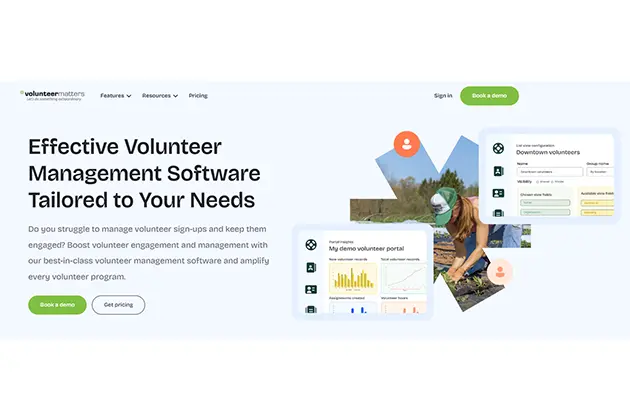Volunteers are essential in nonprofit groups and local initiatives for the community’s well-being and progress. Managing their schedules and tasks can be tough without proper tools. Having suitable volunteer tracking software helps organizations streamline these procedures, leading to smoother operations and satisfied volunteers. This article will discuss how up-to-date technology can assist in efficiently tracking volunteer contributions.
Understanding the Importance of Tracking
Nonprofit entities rely heavily on volunteers to achieve their missions. Accurately tracking volunteer hours with the help of the best volunteer management software ensures transparency and accountability. This data not only helps in recognizing the contributions made by volunteers but also assists in securing funding and support. Efficiently managing assignments ensures that every task aligns with the organization’s goals while keeping volunteers engaged and motivated.
Selecting the Appropriate Software
Choosing the right software largely depends on what your organization requires to function efficiently. Some options provide a wide range of features, such as scheduling and communication tools, along with reporting capabilities, while others concentrate more on managing work hours and tasks efficiently. Determining your core needs will assist in selecting the software that best suits your organization’s requirements.
Important Aspects to Take Into Account
When organizations assess software choices, they should focus on key aspects. Having an interface that is easy to use benefits both those in charge and the volunteers. Using automated tracking systems cuts down on mistakes and saves time. Compatibility with existing systems improves work efficiency. Moreover, having comprehensive reporting tools offers information on volunteer efforts and project advancement.
Optimizing the Process of Arranging Appointments and Tasks
Ensuring volunteers are actively involved requires scheduling strategies that match their availability with shifts. User-friendly software tools that offer flexibility in choosing work hours in advance can be very helpful. The use of automated alerts and messages helps volunteers stay on track with their commitments without missing any important tasks. Delegating responsibilities efficiently through clear task management tools ensures that volunteers have a clear understanding of what is expected of them in their roles.
Improving Communication and Teamwork
Creating effective communication builds teamwork and camaraderie in a nonprofit setting. Using software that includes messaging and notification options helps keep volunteers up to date on any changes or new information. Collaboration tools make it easier for volunteers to work together smoothly on tasks, share ideas, and coordinate their efforts.
Securing the Confidentiality of Information and Ensuring Privacy
Safeguarding volunteers’ information is a concern for organizations and groups. Opting for software that boasts strong security measures guarantees data confidentiality and adherence to regulations. Features like encrypted storage options and strict access protocols, coupled with regular data backups, offer reassurance to both parties involved—be it the organizations or the volunteers themselves.
Assistance for Implementation
When implementing software systems in a workplace setting, it is essential to provide training and support to the staff. Organizations should focus on utilizing platforms that come with resources for getting started and assistance for users. Instruction manuals, online seminars, and specialized support teams all play a role in ensuring a smooth transition to the new technology, reducing any interruptions in managing volunteers efficiently.
Success Stories and Case Studies
Many different groups have utilized software programs to improve how they manage volunteers, showcasing the advantages of integrating technology to make operations more efficient and effective. Concepts learned from these instances offer lessons and motivation for organizations considering implementing such systems.
Future Trends in Volunteer Management Software
The world of volunteer management software is always changing as new trends emerge that will influence its direction. AI and machine learning are poised to transform how scheduling and assignments are handled in the future. Predictive analytics will offer insights into volunteer engagement trends. Additionally, mobile-friendly platforms are being developed to meet the increasing need for accessible solutions that can be used anywhere.
Summary
Integrating software solutions into volunteer management procedures offers a plethora of advantages. Improved monitoring of hours and tasks elevates transparency and accountability. Efficient operations help keep volunteers involved and inspired. Choosing the right software enables organizations to amplify their impact and accomplish their goals efficiently. Adopting technology in volunteer management not only boosts productivity but also nurtures a collaborative and supportive atmosphere for volunteers.










